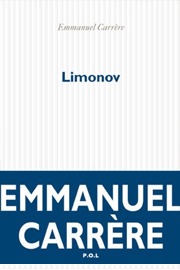«Limonov» by Emmanuel Carrère
Eduard Limonov, the best-selling Ukrainian writer turned right-wing revolutionary, spent much of his adolescence dreaming of becoming a gangster. When that didn’t work out, he turned to poetry — one of countless transformations in the years to come, from homeless émigré and down-and-out butler in New York to enthusiastic foot soldier for the Serbs in the ruthless Bosnian War.
As Emmanuel Carrère reminds us in «Limonov», his «pseudobiography» of this stranger-than-fiction character, the young man’s shift to poetry was less radical than it might seem: Russian adolescents embrace verse like American teenagers turn to rap. But it’s in part such romance that drew Carrère to write this prize-winning book, which was published in France in 2011 and translated into English last month. He spends the rest of «Limonov» trying, and failing, to figure out whether it’s the romance «of the terrorist cell or the resistance network».
«Limonov» opens at a memorial ceremony for the 2002 Chechen siege of the Dubrovka theater in Moscow, where Carrère glimpses the writer striking a surprisingly respectable pose in his black trench coat, surrounded by admirers. Carrère recalls the last several times he’d seen or heard of Limonov — in the ’90s, on television, flanking a Bosnian general later tried for war crimes; and a decade earlier, when, in Paris, he had interviewed the «sexy, sly, funny guy, a cross between a sailor on leave and a rock star».
To connect the disparate dots of this cultural antihero Carrère returns to Limonov’s origins, in the industrial Ukrainian backwater of Kharkov. (He was born in 1943 in Dzerzhinsk, Russia, in the former Soviet Union; his father, a policeman, moved the family to Kharkov.) His involvement in a poetry collective is Limonov’s ticket out, to Moscow and eventually New York, where he emigrates with his second wife, Tanya, in 1974.
Though the couple begins by hobnobbing with the Russian expat elite, before long Limonov’s divorced and nearly homeless. But his reincarnations don’t end there, and Carrère tracks him to Paris, where his book based on the New York years turns him into a minor celebrity, to Serbia, and to Moscow as he founds the neofascist National Bolshevik Party.
Carrère seems to want to make Limonov’s peripatetic story one about Russia as a whole, and the confusion of the immediate post-Soviet era, when Russia careened from putsch to rigged election, when «[n]o one knows who’s good and who’s bad anymore, who’s progressive and who’s reactionary», as Carrère puts it.
As a character, though, Limonov comes across as more despicable than symbolic. Unsavory politics aside, he is petty, jealous, and disdainful of those more successful than he. His attitude toward women verges from the unsavory to the criminal (as the description of a stomach-churning gang rape in Kharkov makes clear). Here, Carrère’s avowed refusal of judgment — elsewhere simply part of the moral swamp of modern Russia — strains patience.
Amid the book’s shortcomings, the more interesting question becomes why Carrère is so drawn to Limonov. In some ways, the two resemble each other. Both adored Jules Verne and Alexandre Dumas as children; both were abandoned by beautiful lovers while abroad. As Limonov schemed to be recognized as a poet and wildly envied poet Joseph Brodsky, Carrère wondered how to escape the intellectual shadow cast by his mother, an eminent French historian.
Yet Carrère, who was raised outside Paris in a comfortable household, is acutely self-conscious of his bourgeois upbringing and relatively smooth passage to the heart of French literary society — a stark contrast to the gritty adventures of his protagonist. When Limonov visits a wealthy Russian émigré family in New York, he is shown the study of their daughter, who has literary pretensions, and wonders how anyone could write literature in such a cozy milieu. It’s a question that Carrère seems to be asking himself.
For Carrère, Limonov’s life parallels literature in ways his own never has. One farewell in the book takes place «in the best Dostoyevskyan tradition». Elsewhere, Carrère compares scenes from Limonov’s life to the novels of Henry Miller; to the characters of Turgenev; to Conrad’s Kurtz. In part, this reflects Limonov’s self-mythologizing efforts. But Carrère also buys into it, imbuing the story with the literary cachet Limonov, now 71, sought but never quite achieved on his own.
We tend to forgive the sometimes unattractive, even loathsome, contradictions of truly great artists. It just isn’t clear, Carrère notwithstanding, that Limonov is among them.
«The Boston Globe», 27 november 2014
 copyleft 2012–2020
copyleft 2012–2020